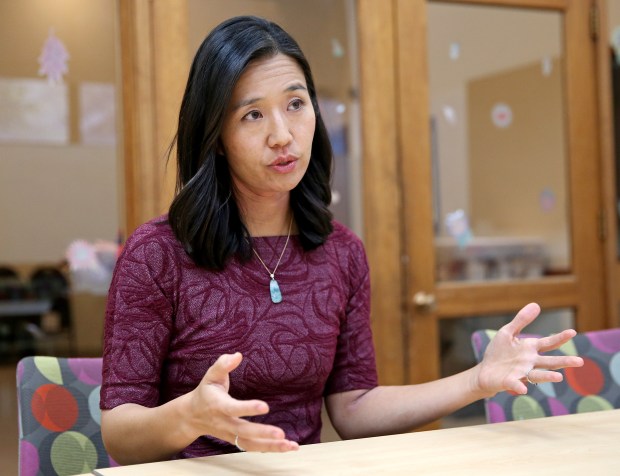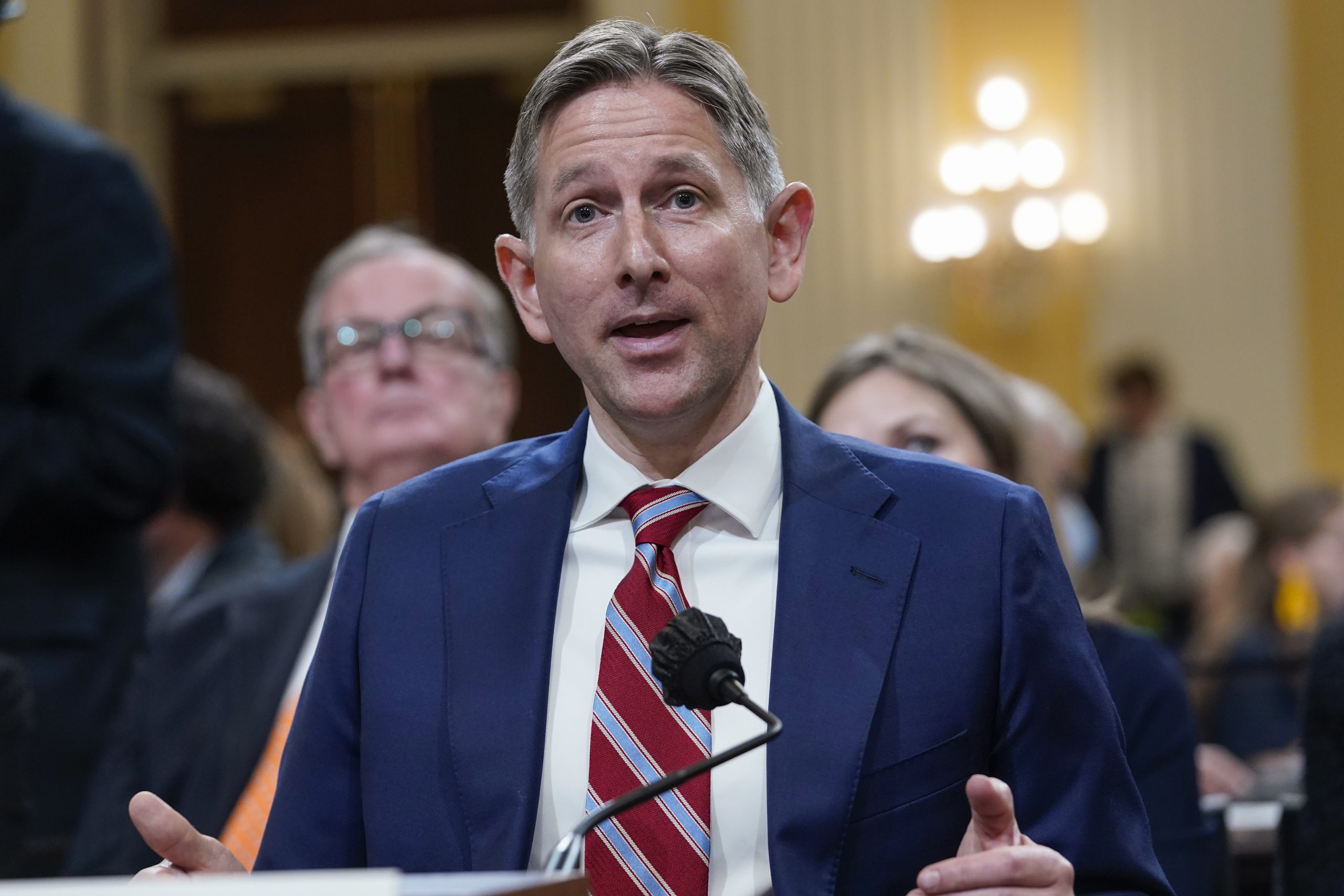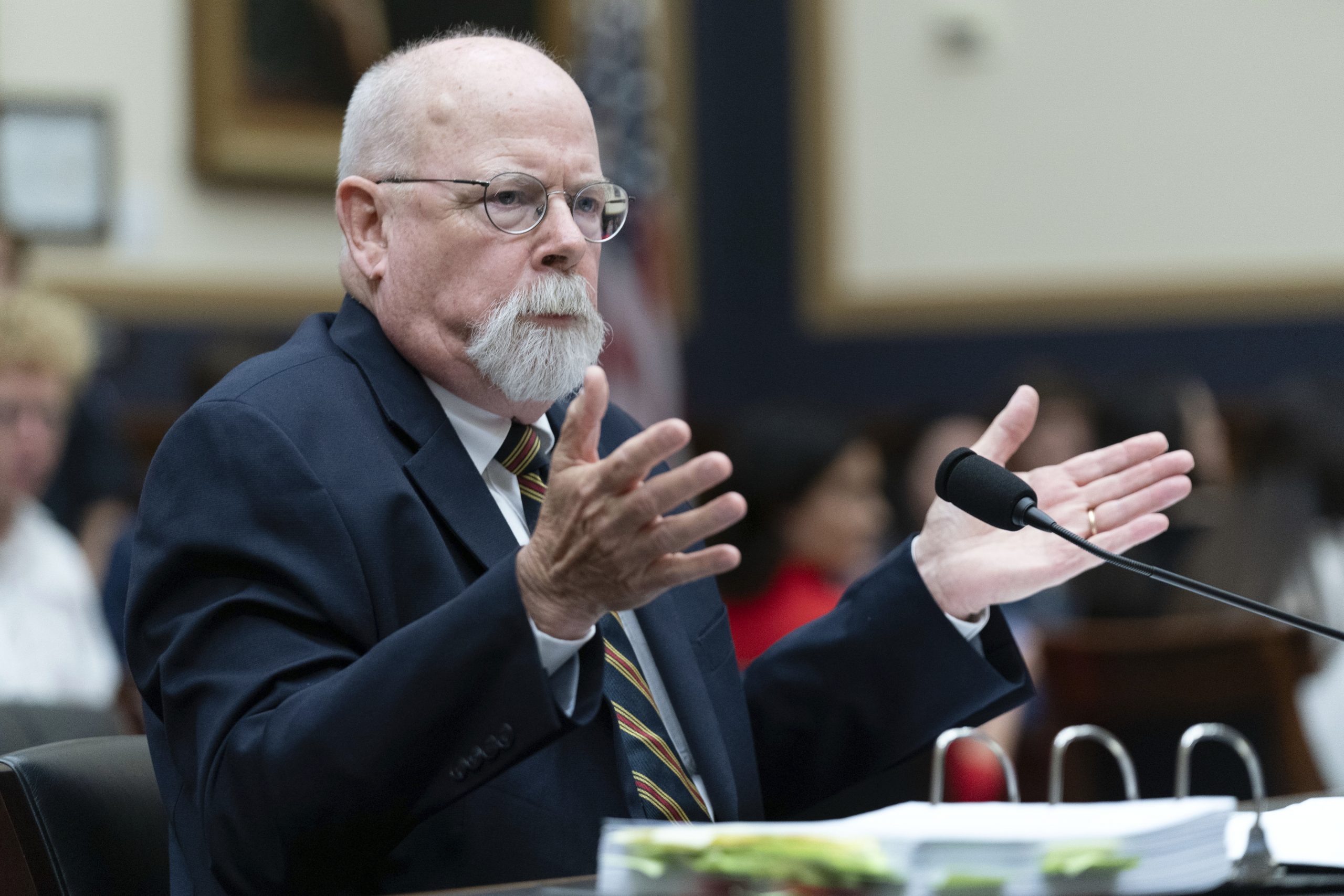As year two of the Wu administration dawns, Mayor Michelle Wu says it’s time to turn the page from getting internal ducks in a row to more forward-looking topics such as rent control and school infrastructure.
Last week marked a year since the five-term city councilor crossed over to the other side of City Hall’s fifth floor, and it’s been a busy one for the first woman and first person of color elected mayor of Boston.
This first stretch has been something of a slog at times for the progressive Wu, who won the mayoralty by an authoritative margin last year and then faced everything from protests over her pandemic restrictions to high-profile criminal incidents in schools to some of the city’s neighborhoods to pushback from a recalcitrant council.
She’s also had her wins: a successful effort to dismantle the tent encampment in the troubled Mass and Cass area — though that portion of the South End still remains in rough shape — plus signing several major open contracts, staving off state receivership of the school district and being able to program the nearly no-strings attached $350 million budget in the directions she wants, particularly toward affordable housing.
Wu, in a sit-down interview with the Herald, characterized her first 12 months as “a return to fundamentals.”
“The goal for this year was to build a team, and I’m so excited at where we’ve ended up with the leaders in place now across our cabinet and departments who are ready to take on this work,” Wu said. While “some of those searches took longer than ideally we would have liked” the city “ended up exactly where we needed to be” with a wide array of cabinet-level positions getting filled.
So now what, in year two of her four-year term?
For one, a proposal for rent control, or “rent stabilization,” as Wu’s administration calls it. She’s had a panel working on the topic for the past six months, and they should soon be ready to roll with a plan for the controversial topic Wu ran on.
“End of this year, early next year, we will see our proposal for rent stabilization,” Wu said. “That will be ready in time to get filed up with the state for their new legislative session.”
Any proposal like this would need the approval of Beacon Hill, where incoming Gov.-elect Maura Healey has not sounded too enthused about it.
Wu also hinted that “some of the reforms that we have been working through and finalizing” around the Boston Planning & Development Agency, which she’s long vowed to abolish, will come out soon.
Also on the to-do list is getting moving more with school infrastructure improvements, which Wu ranked as a high priority.
“Now we’ll see many of those community processes, getting to finishing the visioning portion of it and resulting in the capital budget for this next fiscal year — having real dollars for design and then after that construction of new facilities,” she said, specifically calling Madison Park Vocational Technical School as “the centerpiece” of that.
What can she do better?
“I think a lot of my time was internal,” Wu said. “Working to interview and set the tone and really try to take down separations between different departments so that we could have a more collaborative structure.”
“But I only had so much time, and therefore didn’t get to be out visiting community organizations or directly partnering with as many of our community-side partners as I would have liked. So the goal is to be “moving from an inward-looking organizational-building, foundation-setting year into a partnership, collaboration and community collaboration here.”
One of Wu’s challenges — though she didn’t put it that way — is dealing with a particularly salty City Council that’s clashed with her on a few different topics. She’s vetoed the council-passed budget, elements of the federal pandemic recovery funds bill and pay hikes for the council and herself. The council overrode parts of her vetoes for the budget and salaries.
For a brief moment, something of a political-horseshoe effect appeared on the council, as the councilors both on the left flank and its more conservative members united in their criticisms of the mayor’s office during the pandemic-relief discussions, voting together at times.
That alliance was short-lived, though, as councilors clashed repeatedly over internal issues on the body and then further fractured during a nasty council redistricting process that Wu had the pleasure of largely being able to sit out.
Asked about her relationship to the council, Wu struck a diplomatic if vague tone.
“I have so much respect for an institution that I grew up in and know very well, and for the leaders who choose to put themselves out there and run for office in order to serve our communities,” Wu said.
She did add, though, that they’ve all been on the same page about issues like the MBTA Orange Line shutdown and said, I can think of times where I’ve been with each counselor in their district celebrating a hero square commemoration or cutting the ribbon on new community space, or just spending time at a local restaurant.”

Mayor Michelle Wu looks on as she marches during the Fitzgerald VFW Post 561’s 71st annual Veterans Day Memorial march to St. Brigid Parish on November 11. (Amanda Sabga/Boston Herald)





